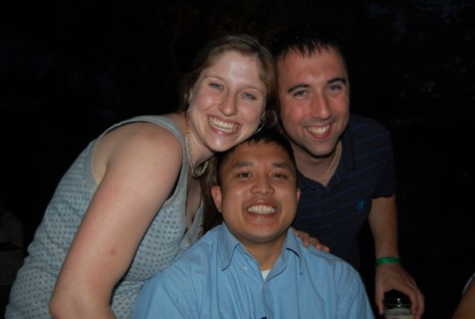E-book options appeal to some
Published Feb 9, 2012
Implementing a new e-textbook system could be an option the university would consider for students, engineering professor John Fanchi said.
“I think the use of e-books would be considered, but not necessarily accepted or required,” Fanchi said.
According to the Chronicle of Higher Education, five universities in the nation are testing a new textbook system that would allow students to pay a small fee to use an e-textbook in an effort to help cut down the cost of textbooks for students. The schools purchase e-textbooks in bulk at cheap prices and charge students a fee to use the e-textbook when they sign up for a class.
The five schools involved in the study are Cornell University, the University of California at Berkley, the University of Minnesota, the University of Virginia and the University of Wisconsin.
Sociology and anthropology professor Carol Thompson, said she felt students should choose the option that best fits their learning needs when deciding whether to buy an e-textbook or a traditional textbook.
“Some people are good with reading online and they like it better,” Thompson said. “So for those students, I think it’s great.”
The number of classes offering e-textbooks changes day by day, said Roman Coronado, textbook manager at the TCU Barnes & Noble Bookstore.
Junior strategic communication major Ale Beltran said she felt there were various advantages to using e-textbooks. Beltran said the main benefit would be the reduced costs for students when buying books.
For sophomore film-television-digital media major Wendy Taliaferro, other benefits of e-textbooks included its size and weight. Taliaferro said she felt e-textbooks would be a more environmentally friendly option and e-textbooks had the advantage of being constantly updated compared to books in print.
“I definitely like this system,” Taliaferro said. “Classes are already expensive, and it would be really great to get a break on books. Not to mention that books take up so much space and it would be awesome to have everything on one device.”
Beltran said she preferred using print textbooks instead e-textbooks because of her concerns about technology.
“I prefer print textbooks because it’s something I am accustomed to, and I don’t have to worry about potential technological problems,” Beltran said.
Fanchi said that for open book tests and note taking purposes print textbooks were the better option.
“Students often mark up their books in many ways to make it easier to find highlighted material during the test,” Fanchi said. “They would have to find new ways to do this, such as using electronic bookmarks which may not be as easy to use when you’re under time constraints.”
There are many aspects to consider when making the choice between e-textbooks and textbooks, Fanchi said.
“The software for creating an e-book may not provide a 100 percent accurate e-version, especially for books with many equations,” Fanchi said. “There are other issues such as copyright infringement and unauthorized distribution.”
Companies such as Apple and Inkling are getting into the business of e-textbooks as well, education professor Sue Anderson said.
The development of interactive e-textbooks that contain video, animations and interactive exercises may increase students’ understanding of material, she said.
“I think that there will be a lot of changes in electronic textbooks in the near future and that TCU should monitor the situation and see how these types of pilot tests work out,” Anderson said. “It would certainly be nice if using electronic textbooks would lower the cost of textbooks for students.”
Some classes at TCU that currently have an e-textbook option are: Interpersonal Communication, Programming Language Concepts, Introduction to Film, Social Psychology and Introduction to Political Science.



